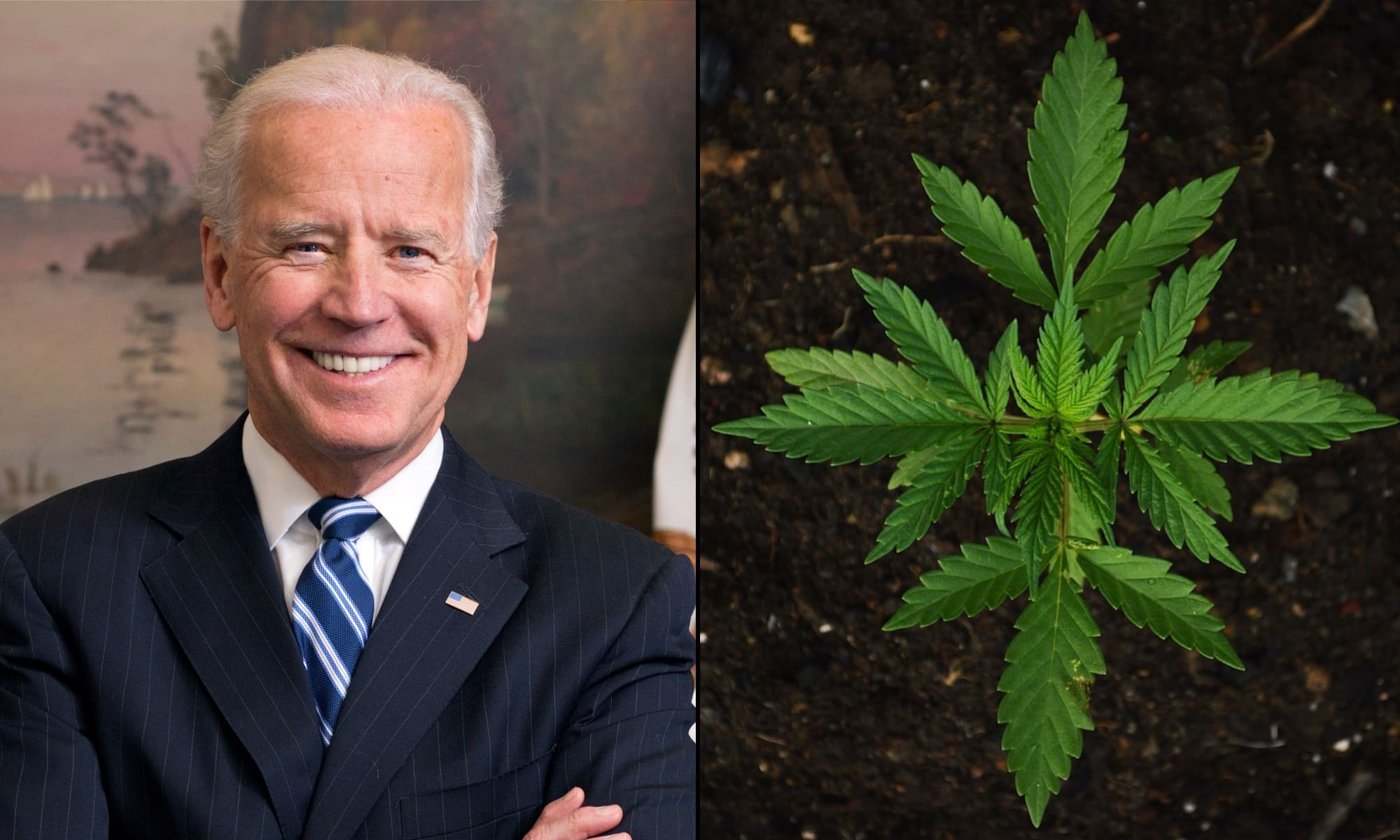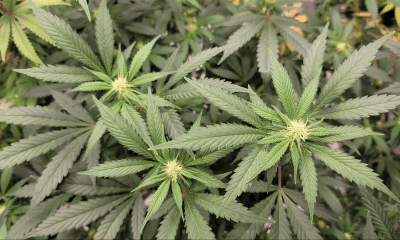Politics
Biden Won’t Commit To Sign Marijuana Bill If Passed By Congress, Press Secretary Says

White House Press Secretary Jen Psaki on Tuesday declined to say whether President Joe Biden would sign or veto a bill to federally legalize marijuana if it arrives on his desk, noting that his cannabis policy position is at odds with broader proposals that congressional Democratic leaders are working on.
She was also asked about his stance on marijuana banking reform, the disconnect between public opinion favoring legalization and the president’s opposition and whether Biden plans to revisit clemency applications for those facing federal sentences over cannabis.
The noncommittal response to the legalization question comes on the unofficial cannabis holiday 4/20—a day that has seen a wide range of politicians, including Senate Majority Leader Chuck Schumer (D-NY), voice support for comprehensive marijuana reform.
Psaki was pressed on the Senate leader’s remarks and asked whether Biden would support legislation to end federal cannabis prohibition if Congress approved it.
“The president supports leaving decisions regarding legalization for recreational use up to the states, rescheduling cannabis as a Schedule II drug so researchers can study its positive and negative impacts and, at the federal level, he supports decriminalizing marijuana use and automatically expunging any prior criminal records,” she said. “He also supports legalizing medicinal marijuana so that’s his point of view on the issue.”
Biden’s positions to that end are well known, but an outstanding question has been whether his opposition to adult-use legalization is so strong that he would reject a reform proposal such as those currently being drafted in the House and Senate.
Asked directly what action the president would take if a federal legalization bill was sent to his desk, Psaki signaled that he wouldn’t be inclined to sign it, stating “I just have outlined what his position is, which isn’t the same as what the House and Senate have proposed, but they have not yet passed a bill.”
The reporter followed up to ask about a separate cannabis pledge Biden made as a presidential candidate, when he said people incarcerated in federal prisons over non-violent marijuana offenses should be released.
Psaki said that would be addressed if cannabis was rescheduled to Schedule II—a dubious claim given that there are still serious penalties for offenses involving substances in that category as well. She also didn’t provide any insight into whether the president is proactively pushing for the modest scheduling change.
Later in the briefing, the press secretary was asked where Biden stands on legislation to protect banks that service state-legal marijuana businesses from being penalized by federal regulators. The House approved the Secure and Fair Enforcement (SAFE) Banking Act along bipartisan lines on Monday.
She said it was a “good question,” but she wasn’t sure and told the reporter she would follow up with a response later.
When pushed on Biden’s opposition to the legalization in the face of mounting, majority support among Americans, Psaki said that while he’s in favor of decriminalization and legalizing medical marijuana, he wants more research on the “positive and negative effects” of adult-use legalization.
“He’ll look at the research once that’s concluded,” she said. “Of course we understand the movement that’s happening toward it. I’m speaking for what his position is and what long, consistently has been his position. He wants to decriminalize, but again, he’ll look at the research of the positive and negative impacts.”
The press conference ended with a final question about cannabis policy—specifically whether the Biden administration plans to revisit requests for clemency for federal cannabis convictions. The reporter cited the case of Luke Scarmazzo, who was sentenced to 22 years in federal prison for operating a state-legal medical cannabis business in California, as an example.
“Given, as you’ve noted in the briefing, the president’s support for decriminalization, support for expunging exactly these types of offenses, are there any plans to revisit some of those bids for clemency?” the reporter asked.
“Well, I would just take it as an opportunity to reiterate that the president supports legalizing medicinal marijuana,” Psaki said. “It sounds like this would have been applicable in this case, and of course decriminalizing marijuana use and automatically expunging any prior criminal records. In terms of individual cases, I can’t get ahead of those obviously.”
These question come, of course, on 4/20. But they also come at a time when there’s a concerted push in both chambers of Congress to seize the opportunity they have with Democratic control to pass legalization legislation.
Schumer, Senate Finance Committee Chairman Ron Wyden (D-OR) and Sen. Cory Booker (D-NJ) have been working on a bill on their side. The majority leader told Marijuana Moment on Monday that he’s working to push the president in a pro-legalization direction as they draft the measure.
Schumer said last week that the legislation will be introduced and placed on the floor “soon.”
On the House side, Judiciary Chairman Jerrold Nadler (D-NY) said recently that he plans to reintroduced his legalization bill, the Marijuana Opportunity, Reinvestment and Expungement (MORE) Act, which cleared the chamber last year but did not advance in the Senate under GOP control.
Schumer Worries Senate Marijuana Banking Vote Could Undermine Broader Legalization Push
















